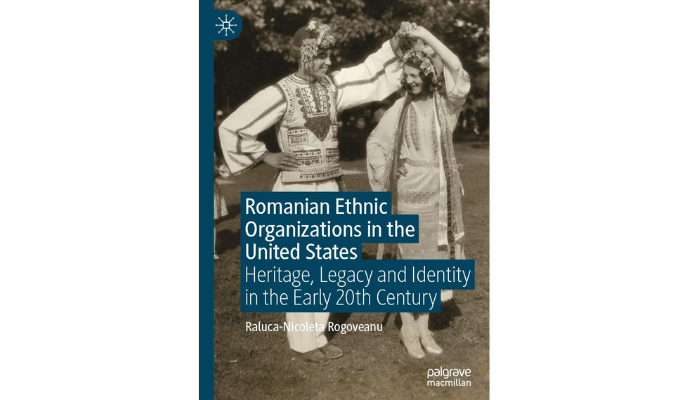Romania took hold of my heart in 2015 and since then has consumed my mind and soul. As with any genuine commitment, my relationship with this beautiful, complex country has grown and deepened over time as I have learned of its many tragedies, as well as its many triumphs. I have surrendered myself to Romania. [...] As I continue my Romanian journey, I marvel over the resiliency and fortitude of the people. I am fortunate to have developed close relationships, familial in many ways, with many Romanians. And I am eternally grateful to have been granted a Fulbright and honored to become part of this amazing community.
Romanian Ethnic Organizations in the United States

Fulbright Ambassador Raluca Rogoveanu has recently published a scholarly volume titled Romanian Ethnic Organizations in the United States. Heritage, Legacy and Identity in the Early 20th Century (Palgrave Macmillan, October 2025). In the book’s acknowledgements, Dr. Rogoveanu credits the Fulbright Program for enabling her first in-depth encounter with Romanian-American communities in Los Angeles, an experience that later developed into a long-term research interest and ultimately culminated in this monograph.
About the book
This monograph on cultural anthropology brings into focus the presence and voices of Romanian-Americans in the United States by examining the role of voluntary associations in shaping identity and community life during the first four decades of the 20th century. It offers a comprehensive analysis of Romanian ethnic organizations in their diverse forms—fraternal and mutual aid societies, political clubs, cultural associations, ladies’ auxiliaries and youth groups—and describes them as crucibles of the Romanian immigrant experience in the New World. The book argues that ethnic associations served as effervescent spaces of cultural interaction, which enabled members to affirm both their loyalty to Romania and their commitment to American life. Grounded in original research based on primary sources from libraries and historical societies—many of which have not been previously examined in scholarly work—this book will be of interest to scholars in the areas of Ethnic Studies, Diaspora Studies, Cultural Studies and Anthropology.
About the author
Raluca-Nicoleta Rogoveanu, Ph.D., is an Associate Professor at Ovidius University of Constanța. She teaches and publishes in the areas of American Literature and Culture and Diaspora Studies. She was a Fulbright Researcher at the University of California, Los Angeles (2013), and a Balch Fellow at the Historical Society of Pennsylvania (2017). In 2025, she received a Grant-in-Aid Award from the Immigration History Research Center Archives at the University of Minnesota.
Read more: https://link.springer.com/book/10.1007/978-3-032-03507-3


